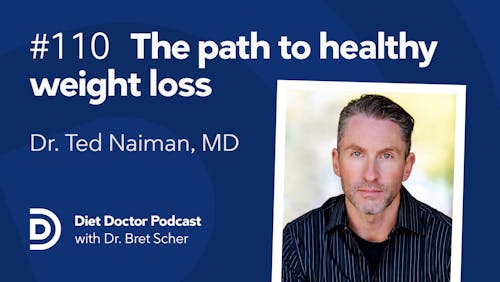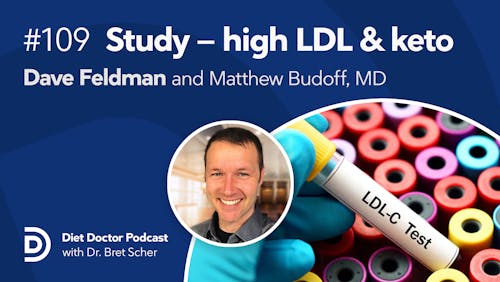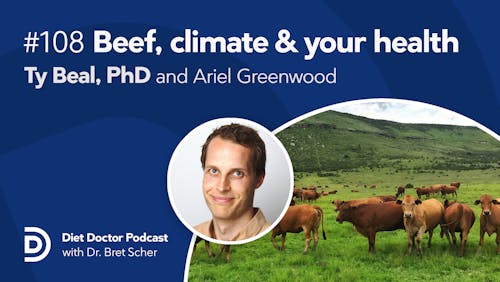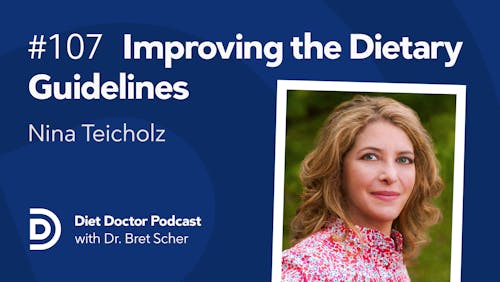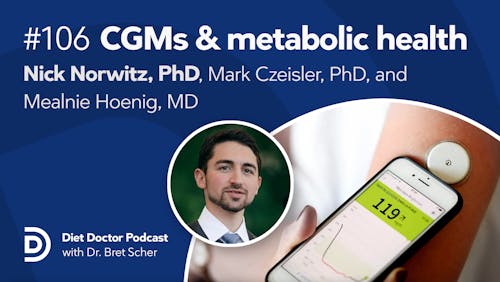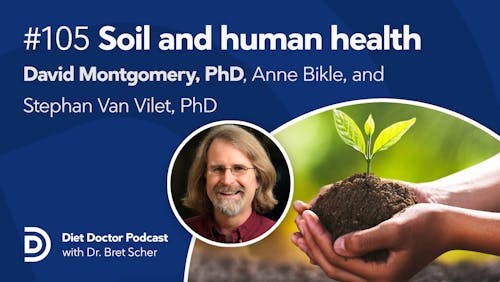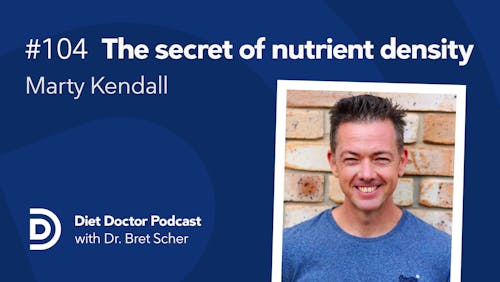Diet Doctor Podcast #35:
Dr. Benjamin Bikman
1,031 views Add as favorite
Why is insulin so important for us to control? And why does a ketogenic diet help so many people? Professor Ben Bikman has been studying these questions in his lab at BYU for years. In fact, he’s one of the foremost authorities on the subject.
As you’ll see in this interview, Ben is incredibly passionate about this topic! He digs into the actions of insulin and glucagon, how protein intake affects these hormones, and the role of ketones as a metabolic actor. Plus, Ben shares some of the practical aspects of living low carb in real life — as a father, husband and researcher.
About the video
Recorded at Keto Salt Lake in April 2019, published in November 2019.
Host: Dr. Bret Scher
Sound: Dr. Bret Scher
Editing: Captur4 Project
Table of contents
2:03 Welcome, Prof. Ben Bikman
2:26 How metabolism led Ben to low carb field
9:45 Responding to anti low-carb people
12:24 Insulin resistance and glucose intolerance
16:12 Insulin, glucagon and protein
22:44 Measuring glucagon ratio
27:07 Authopagy and factors to activate it
31:14 Metabolic approach for chronic illness
34:29 Controlling mTOR to trigger autophagy
37:10 Traditional cancer therapy and the ketogenic diet
42:09 Limiting carbs or aiming for ketones?
49:00 A day in the life of Ben Bikman
58:18 Where to find Ben Bikman
Why is insulin so important for us to control? And why does a ketogenic diet help so many people? Professor Ben Bikman has been studying these questions in his lab at BYU for years. In fact, he’s one of the foremost authorities on the subject.
As you’ll see in this interview, Ben is incredibly passionate about this topic! He digs into the actions of insulin and glucagon, how protein intake affects these hormones, and the role of ketones as a metabolic actor. Plus, Ben shares some of the practical aspects of living low carb in real life — as a father, husband and researcher.
TranscriptAbout the video
Recorded at Keto Salt Lake in April 2019, published in November 2019.
Host: Dr. Bret Scher
Sound: Dr. Bret Scher
Editing: Captur4 Project
